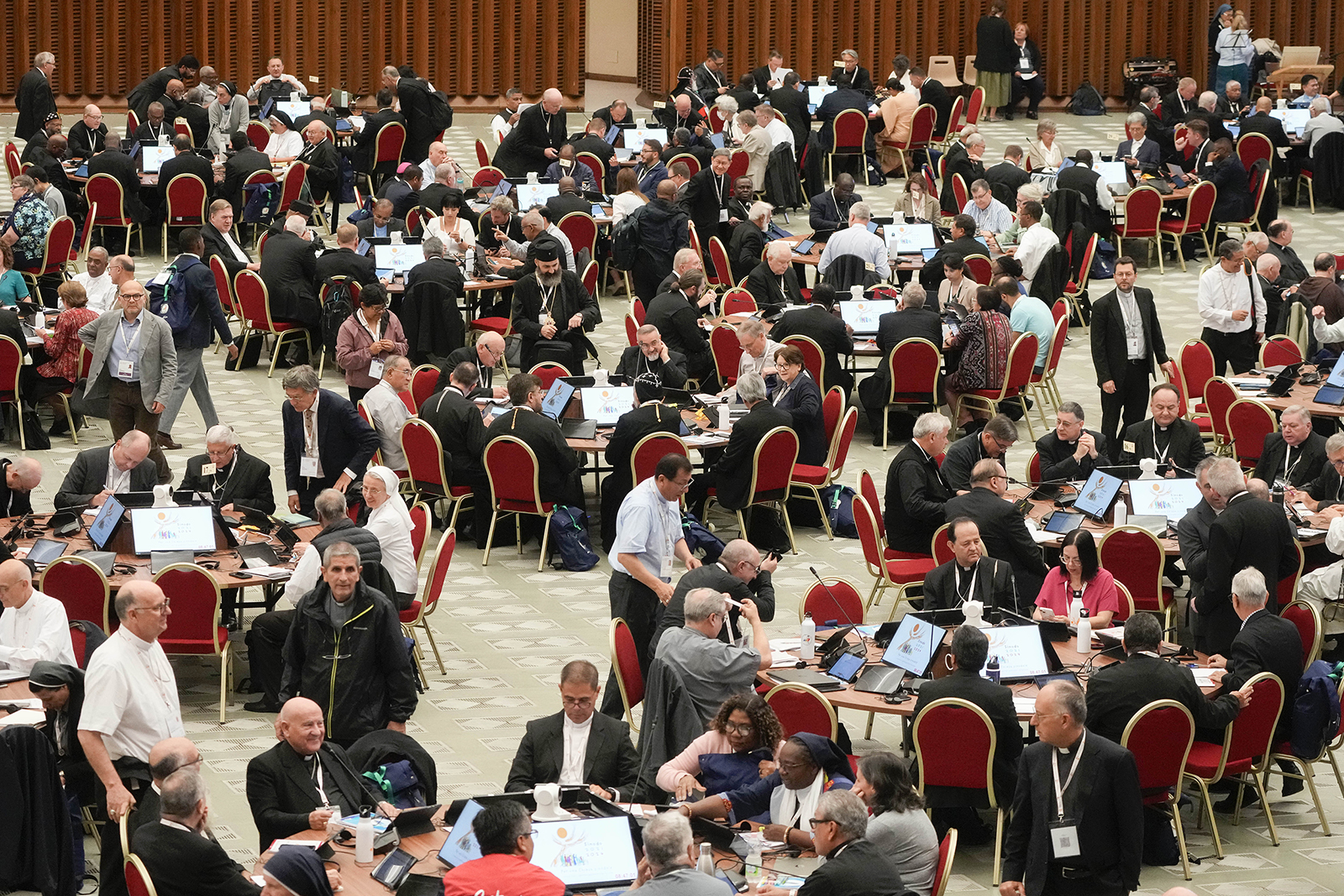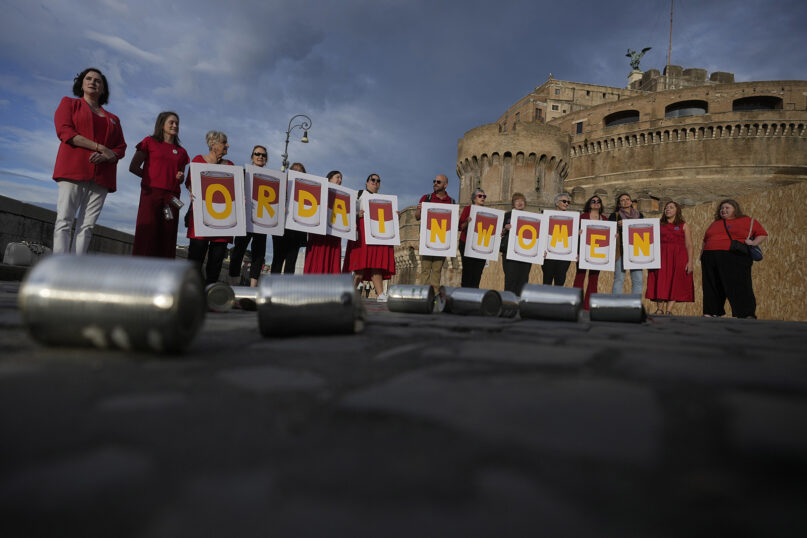
VATICAN CITY (RNS) — One can’t avoid a sense of déjà vu in Rome this week, as the everyday swarms of tourists are joined by pilgrims, pastors and prelates here for the second round of the Vatican’s Synod on Synodality, whose first round was consummated in October 2023. While a synod in the Catholic Church normally means a conference of bishops, Francis has also invited priests and women religious as well as laypeople, most of them the same faces as last year. For some members of the press corps, it feels like Groundhog Day has come to the Vatican.
In the spirit of synodality, which the Vatican roughly translates as “journeying together,” the delegates this year and last have been seated at circular tables, meant to demonstrate an equality rather than a hierarchy and foster a vision for a new church marked by dialogue, listening and inclusivity.
But while the discussions may be robust and equitable, many observers — Catholic or otherwise — wonder what has been achieved beyond talk.
Synod communicators and Vatican officials have tried to translate what is happening during the discussions into meaningful change. “This is not just a chronological repetition of what has happened before,” said the Rev. Giacomo Costa, a familiar face in his role of special secretary to the synod, during the first synod news conference at the Vatican on Thursday (Oct. 3.)
Costa assured reporters that delegates are more familiar with each other this time around, which he said means the quality of the work has improved. Synod attendees are supposed to focus on specific issues and not be distracted by “raising questions and opening ever growing discussions,” Costa explained.

Cardinal Mario Grech, left, and the Rev. Giacomo Costa attend a news conference to present the “Instrumentum Laboris,” a preparatory document ahead of the 16th General Assembly of the Synod of Bishops, at the Vatican, July 9, 2024. (AP Photo/Alessandra Tarantino)
This was also underlined in the opening speech by Cardinal Mario Grech at the synod’s General Assembly, who said he “took the trouble” of counting how many question marks appeared in the document that will inspire the discussions, called “Instrumentum Laboris.”
“The question mark appears around a dozen times, compared to the 300 times in the previous one,” he said. “It seems like a good indicator of the step forward that the second session is called to take and a clear invitation to focus our attention on a single direction.”
The sense that nothing of note is happening is increased by the lack of news, as the Vatican has not allowed the media to report on developments. Though there are daily news conferences, journalists are only allowed to interview handpicked delegates and to read some of the speeches given inside closed rooms, and even these have no name attached.
Outside of the Vatican, Catholic advocacy groups and organizations are conducting their own demonstrations, conferences and vigils, hoping to influence the discussions, but they know as little as the reporters about what’s going on around those circular tables.
Another reason many suspect the synod lacks direction is that the most hot-button issues that Catholics told the Vatican they wanted solved have been taken out of the delegates’ hands in favor of 10 study groups of theologians and experts who are not part of the synod proper. The questions that a year ago gave progressive Catholics hope for reform and conservatives nightmares are off the table until the study groups report on their findings next year.
These include questions such as the ordination of women, marriage for priests and the inclusion of LGBTQ Catholics, but also others at the top of everyday Catholics’ minds: Why shouldn’t laypeople have a say about who becomes a bishop or papal representative? How can the church better prepare priests? What about the widespread practice of polygamy, especially in African churches? What needs to be done to deepen the relationship with Eastern Rite Catholics and other denominations?

Advocates for women’s ordination hold signs reading “Ordain Women” during the “Don’t Kick the Can, Women Can Be Priests” flash mob rally in Rome, as Pope Francis opened the Synod of Bishops at the Vatican, Oct. 2, 2024. (AP Photo/Alessandra Tarantino)
These questions get less media coverage, but are no less thorny. As the Rev. Thomas Reese, an RNS opinion columnist, said, “Some of these questions have been at the center of Catholic debates since the (16th century’s) Council of Trent!”
Costa emphasized this week that several of the members of the study groups are also delegates at the synod and in their presentations at last year’s session they invited every member, but also any Catholic group or individual, to offer their reflections. The study groups are meant to “discern, not veto” the proposals of the synod, he said.
“The Dicastery judges that there is still no room for a positive decision by the Magisterium regarding the access of women to the diaconate, understood as a degree of the Sacrament of Holy Orders,” Fernandez said, adding that their study found “a particularly interesting way forward” for other modes of female leadership in the church.
If the synod is a journey and changing the church’s culture needs time, as Catholics have been reminded throughout the synod’s three years, synod delegates have said that they feel the synodality experiment is working, inspiring real dialogue and listening inside the Vatican halls. After this month’s summit, many Catholics will be watching to see if that change will be exported to every parish, bishop’s conference and Catholic assembly in the world.
